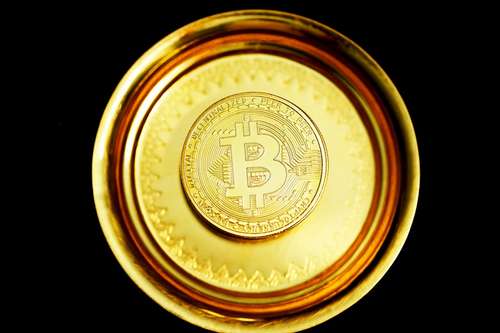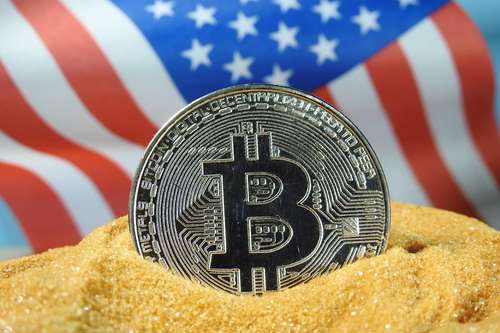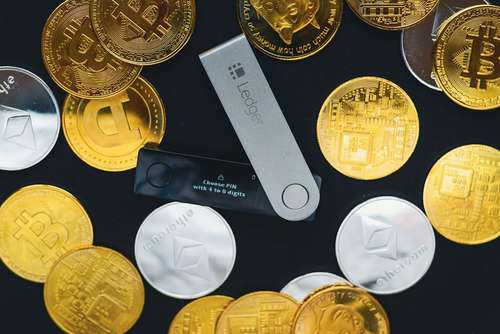US Debt, the Dollar’s Waning Dominance, and Bitcoin’s Rising Allure
The conversation around US debt has taken a new twist. Lately, industry leaders have been warning that soaring debt levels might just upset the global balance of power. When you think about it, it’s startling to realize that excessive debt could end up pushing investors toward unconventional assets like Bitcoin, and that’s exactly what BlackRock CEO Larry Fink has been highlighting. There’s a feeling of urgency in the air and plenty of chatter about what the future holds for the US dollar and its global role.
Things are heating up in the world of finance. If you ever wondered why traditional currencies sometimes feel a bit unstable in the current economic environment, this is a prime example. A concerned tone has started to permeate boardrooms and trading floors alike. The idea is that if the national debt spirals out of control, the trust in the dollar might quickly diminish, opening the door for cryptocurrencies to take center stage. It’s an intriguing scenario that’s shaking up the status quo.
Debt Dangers & Dollar’s Decline
Let’s dig into the risks. The US is facing a monumental debt dilemma. A short introduction on this section: many experts believe that continuing on this financial path could push the dollar into a shadow of its former self. Investors might start looking elsewhere for stability, and that’s where crypto assets come into play.
The warnings aren’t baseless. Rising debt could weaken the credibility of America’s asset management company reputation and even the performance found in stock markets today. I mean, think about it: if you’re holding assets that you’re not sure will hold their value, would you really stick with the dollar? When investors measure risk, they compare what they know with other options. With US debt mounting, the traditional funds and portfolios that once reassured us might start to seem less attractive.
In many discussions, people have drawn parallels with trends in stocks markets where volatility tends to breed new interests. It’s almost as if the trust in conventional economic policies is slowly giving way to the curiosity that surrounds crypto investments. Here, you might notice related topics like litecoin and lightcoin being mentioned alongside emerging figures like shiba inu coin and pi coin price changes. Could diversified crypto trends become the new safe haven? Investors are beginning to wonder.
Historical patterns often repeat themselves in the financial world and when you see debt levels soaring, it often signals a shift. There’s an underlying narrative here that the mighty dollar may soon be competing with a decentralized forms of currency like Bitcoin, thanks to the reluctance among investors to anchor on a debt-ridden national economy.
Bitcoin’s Rising Allure
This section zeroes in on Bitcoin and its newfound prominence. With the current economic conundrum over US debt, Bitcoin is being viewed not just as another speculative asset, but as an alternative financial powerhouse. It’s a fascinating counterpoint to the dated notion that fiat money — especially that of the United States — can remain unchallenged indefinitely.
Bitcoin isn’t just a buzzword; it represents a broader shift in how we perceive value and trust. The idea that one digital token might eventually challenge the global dominance of a currency that has long been seen as the economic bedrock is both revolutionary and a bit unsettling. In many conversations, individuals point to Bitcoin as the asset management company of the new era — one that potentially offers a safer alternative, if the US debt balloon continues to grow unchecked.
People are also looking at tokenization as the future of investing. It’s like having a key that unlocks access to assets that were once out of reach. The fact that more investors are being given the chance to participate in markets that were earlier reserved for the elite is a game changer. This democratization in crypto investing could lead to more diversified portfolios and even a reshuffling of how wealth is managed on a global scale.
If you take a moment and compare traditional stock markets to today’s cryptocurrency investments, you begin to see the divide. Whereas old stock markets today sometimes seem sluggish and overly regulated, crypto offers a breath of fresh air with its rapid innovation and high adaptability. With concepts such as coin marketcap playing a pivotal role in tracking these digital assets, even casual investors have a chance to gain insights into how their portfolios might perform against the backdrop of historic US fiscal policies.
It’s an interesting time. The cautious optimism among crypto enthusiasts is palpable and many believe that Bitcoin could serve as a safety net. That sentiment is sparked not only by the growing US debt numbers, but also by the very real possibility that we might be witnessing the birth of a financial revolution where traditional currencies meet their match in digital counterparts.
The Future of Finance: Realigning Trust and Value
Imagine a world where trust in a national currency isn’t taken for granted. This section briefly introduces the idea that if national debt continues to accumulate, we may see citizens and international investors turning to cryptocurrency as a reliable alternative to traditional money.
The US dollar has long been the world’s go-to currency, and it’s deeply woven into the fabric of global markets. However, as the national debt continues its upward march, the once unshakeable system could start to wobble. We’re now exploring the possibility that simply put, investors might start favoring a digital asset like Bitcoin. Many financial experts have hinted that the modern solution might come via alternative payment systems, bolstered by blockchain’s transparent ledger and efficiency.
This new direction might not be instant, but the seeds are clearly planted. As fear of devaluation mounts, especially when combined with other volatile trends seen across stocks markets, crypto stands out as an unconventional yet appealing alternative. From discussions about litcoin to even the trending shiba inu coin, there’s a growing belief that the crypto landscape is evolving, and with it, our trust in traditional finance is seeing cracks.
Moreover, in the realm of lighthearted debates between enthusiast communities, coin marketcap isn’t just a tool—it’s almost a symbol of emerging financial independence. And let’s not forget, as the pi coin price fluctuates and markets adjust, these digital currencies offer vibrancy and dynamism that can lure even the most conservative investor looking for certainty amidst chaos.
In Summary
The discussion about US debt and its impact goes deeper than numbers on a ledger. It speaks to a fundamental change in how economic power is distributed around the globe. The warnings from BlackRock’s CEO bring a clear message: if the ballooning debt isn’t curbed, we might see a drastic shift in investor behavior where established fiat currencies become less appealing compared to the up-and-coming world of cryptocurrency.
In closing, the warnings aren’t just about a dramatic shift in policy but signal an era where blockchain technology and tokenization could democratize investing. This could break the chains that have traditionally kept certain assets accessible only to a select few. Whether you follow litcoin, curious about shiba inu coin, or simply want to keep an eye on coin marketcap trends, it’s an exciting time to be paying attention. As the global balance inches ever so subtly towards Bitcoin and other cryptocurrencies, it’s clear that we’re in the midst of something transformative.




